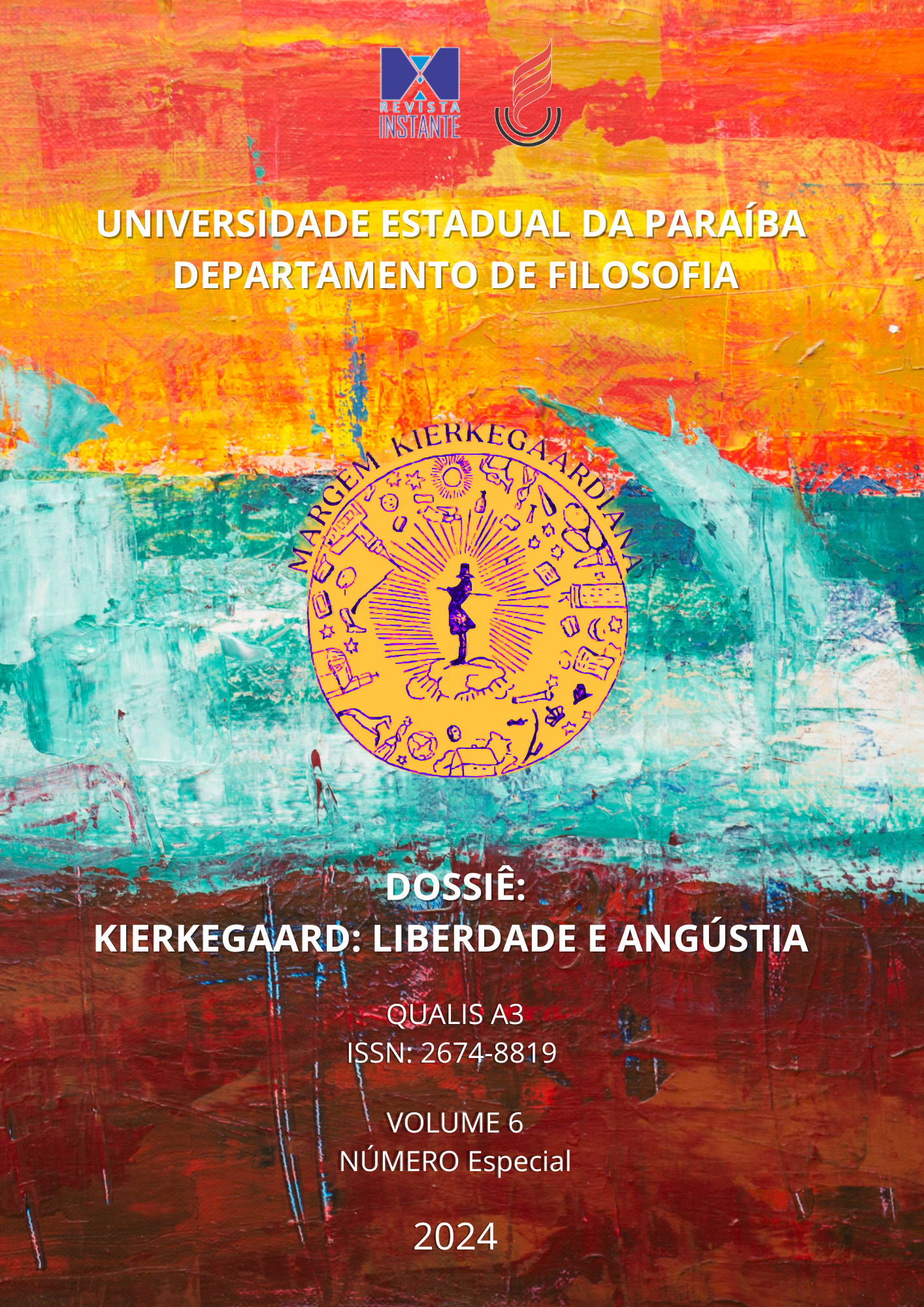FREEDOM AND CREATION
Keywords:
Freedom. Creation. Kierkegaard. Bergson.Abstract
Based on a passage from The Odyssey, which tells of the fate of the hero Ájax, we consider the relationship between freedom and creation. Inspired mainly by Kierkegaard and Bergson, we suggest that individual freedom is always an expression of a more original freedom, a creative freedom that exceeds us. True freedom is the continuous creation of the radically new. That's why being free is not acting according to an atomized, isolated will, but entering a flow of unfathomable and non-determinable creation that incessantly crosses the Self, giving it to itself. It is when our actions emanate from our entire personality, and not from a mere fragment of it, that we are truly free. Therefore, our experience of freedom depends on a deep dive into our own personality. Very often, however, we want to go inside ourselves, because there we find something that is beyond our control, that escapes all determination and predictability and that gives our freedom and itself in a creative way, permeated with indeterminacy. That's why to experience freedom – as a force that exceeds me, that is more original than myself and from which my actions emanate – is to feel anguish. The relationship between the work and the artist – which we used as an example – clearly shows the indeterminacy of free and creative activity. In fact, like the artist's activity, free action is that which, insofar as it follows its own tendency, discovers right there, within that tendency, that nucleus of indeterminacy which endows the action with grace, that is, with creativity.
References
BERGSON, Henri. A Evolução Criadora. Trad.: Adolfo Casais Monteiro. São Paulo: Ed. UNESP, 2010.
__________. Ensaio sobre os dados imediatos da consciência. Trad.: João da Silva Gama, Lisboa: Edições 70, 1998.
FEUERBACH, Ludwig. Espiritualismo y materialismo: especialmente en relación con la libertad de la voluntad. Traducción de Leandro Sánchez. Medellín: Marín ennegativo ediciones, 2021.
HOMERO. Odisseia. Trad.: Trajano Vieira. São Paulo: Editora 34, 2013.
KAZANTZÁKIS, Nikos. Vida e Proezas de Aléxis Zorbás. Trad.: Mrissa Ribeirao Donatiello, Silva Ricardino. São Paulo: Grua, 2011.
KIERKEGAARD. S. A Doença para a Morte. Trad.: Jonas Roos. Petrópolis: Vozes, 2022.
__________. Discursos Edificantes em Diversos Espíritos. Trad.: Álvaro L. M. Valls e Else Hagelund. São Paulo: LiberArs, 2018.
__________. O Conceito de Angústia. Trad.: Álvaro L. M. Valls. Petrópolis: Vozes, São Paulo: Editora Universitária São Francisco, 2010.
KIERKEGAARD. S. A Repetição. Trad.: José Miranda Justo, Lisboa: Relógio D’água Editores, 2009.










